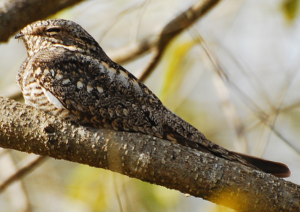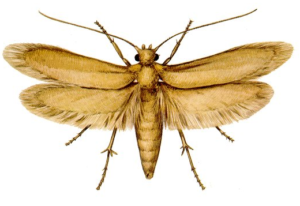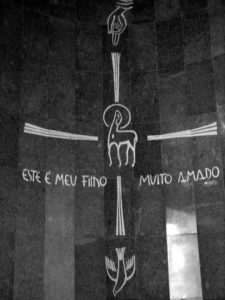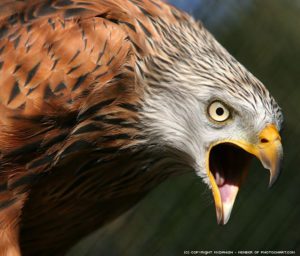 Leviticus 11:16 and Deuteronomy 14:15 are the only instances in the Bible in which the night hawk is listed, as a bird amongst prohibited or unclean birds.
Leviticus 11:16 and Deuteronomy 14:15 are the only instances in the Bible in which the night hawk is listed, as a bird amongst prohibited or unclean birds.
Three distinctive characteristics of the night hawk that we can learn from are
1. its ability to incessantly keep singing that bewilders the hearer as to how a bird can hold its breath for such a prolonged period of time.
2. it sits longitudinally to the branch it perches, making it almost impossible for a viewer to see where it is and only its cry gives away its presence and
3. its cry is so distinctive that it can be identified by its voice.
So what can we learn from the night hawk?
- Do we pray incessantly as we are asked to. Paul, the Apostle admonishes believers to “pray incessantly (without ceasing)” (1 Thessalonians 5:17)
- Are we aligned (sitting longitudinally) with the word of God, hiding in the word of God, so that we may not be caught in the sight of sin which seeks to turn us away from God. The psalmist says that hiding the word of God in our hearts, will hide us from the sins that try to encumber us (Psalm 119:11)
- Can we be identified by our voice?Are we known by what we speak? This is of paramount importance. Our words can build others or break others. The Bible says that we are accountable for every word that we utter (Matthew 12:36-37). James cautions us to control our tongue (James 3). There is a time to be silent (Be Still and know that He is God in control) and there is a time to speak (with the boldness of the Apostles when we are in the business of sharing the Gospel). How are we known by our voice?
1 Thessalonians 5:17 (KJV)
17 Pray without ceasing.
Psalm 119:11
11 Thy word have I hid in mine heart, that I might not sin against thee.
Matthew 12:36-37
36 But I say unto you, That every idle word that men shall speak, they shall give account thereof in the day of judgment.
37 For by thy words thou shalt be justified, and by thy words thou shalt be condemned.





